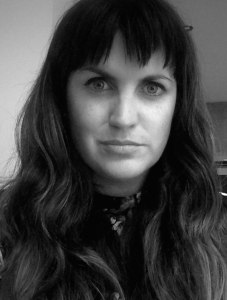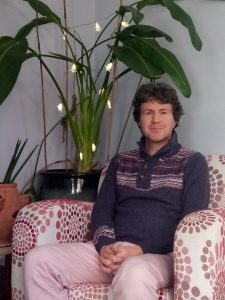Welcome to The Friday Prof-ile – a chance to get to know some of our recently appointed Professors and Associate Professors a little better. Every Friday, we’ll be asking a different person the same set of questions to get an insight into their life, work and what makes them tick.
This week, we’re chatting with Professor in Consumer Culture & Behaviour, Janice Denegri-Knott…

Janice Denegri-Knott
What are your research interests? What made you want to study these areas?
My main research focus is the intersection between digital media and everyday living – in particular consumption. I have studied the role of platforms in stimulating desire for digital and material goods, and the value that people derive from their ongoing interactions with digital media. In particular, I have been very keen to understand why there should be demand for digital goods and why people would form attachments to them – something that when I first began my studies, was deemed unorthodox, and even foolish. Throughout my career I have been a keen observer of transformations (positive and negative) happening at the very porous, or leaky, points of that intersection, where people and digital media come together.
My initial interest in the area came about as a result of an animated seminar I held with C&J students back in the early 2000s where we avidly discussed why somebody would ever buy a virtual chair that they couldn’t physically sit on. From there on the examples became more extreme. Today, we have grown more accustomed to the idea that under certain conditions (uniqueness and scarcity), a digital piece of art like Pak’s ‘The Merge’ could have a transactional value of $91.8 million, or why 30,000 people across the world would want to pitch in together to buy it. Evidence of this shift abounds. Today, we have a vibrant market for Non Fungible Tokens (NFTs) which have become very desirable investments. Just in the first four months of 2021 NFTs had been traded over 2 billion times, an increase of ten-fold from 2020.
What has been your career highlight to date?
I am immensely proud of the many projects that I have carried out over the years in close collaboration with colleagues in the C&J Department in the Faculty of Media and Communication – Dr. Rebecca Jenkins, Dr. Chris Miles, Dr. Mel Gray, Dr. Sae Oshima and Stuart Armon. We have delivered high impact research, supporting positive transformation in the promotion and media industries. In particular in areas to do with the monetisation of digital content (for ITV), and metrics to measure advertising effectiveness and rethinking recall and recognition as measures of attention. Of note is work undertaken for Exterion Media (now Global) and Transport for London (TfL) that helped Exterion Media secure a £2,000,000,000 contract to manage the TfL advertising estate, improved advertising effectiveness by format, location and time by 70%-80% and making advertising during travel journeys more relevant and enjoyable for 1,300,000,000 TfL users annually.
What are you working on at the moment?
Right now I am working on two projects. I am writing a couple of papers reporting findings from a British Academy/Leverhulme funded intergenerational study into the value parents, children and their grandparents ascribe to their digital possessions. Thanks to this study we have found that value is not wedded to meaning only – in terms of sentimental associations that remind people of loved ones or expresses aspects of their identity- as is the case for material possessions. Value is also firmly rooted in affordances – what people anticipate their digital possession will enable them to achieve. I am also working with a key player in the NFT market on a study of people’s desire for and attachment to NFTs across a diverse group of users.
If you weren’t an academic, what would you be doing?
I would be working with food – possibly running a Peruvian restaurant with the help of my husband and daughters.
What do you do to unwind?
Long walks, meditation, long distance calls with family and impromptu dances in my kitchen with my daughters.
If you could pick any superpower, what would it be and why?
Tele-transportation, so that I could beam myself to Peru and back (where my parents and family live)
If you were stranded on a desert island, what one luxury item would you take with you?
My silk kaftan.
What advice would you give to your younger self?
To be less concerned in anticipating all that can be wrong with your research, and focus more on all that is good.












 Visiting Prof. Sujan Marahatta presenting at BU
Visiting Prof. Sujan Marahatta presenting at BU 3C Event: Research Culture, Community & Can you Guess Who? Thursday 26 March 1-2pm
3C Event: Research Culture, Community & Can you Guess Who? Thursday 26 March 1-2pm Beyond Academia: Exploring Career Options for Early Career Researchers – Online Workshop
Beyond Academia: Exploring Career Options for Early Career Researchers – Online Workshop UKCGE Recognised Research Supervision Programme: Deadline Approaching
UKCGE Recognised Research Supervision Programme: Deadline Approaching SPROUT: From Sustainable Research to Sustainable Research Lives
SPROUT: From Sustainable Research to Sustainable Research Lives ECR Funding Open Call: Research Culture & Community Grant – Apply now
ECR Funding Open Call: Research Culture & Community Grant – Apply now ECR Funding Open Call: Research Culture & Community Grant – Application Deadline Friday 12 December
ECR Funding Open Call: Research Culture & Community Grant – Application Deadline Friday 12 December MSCA Postdoctoral Fellowships 2025 Call
MSCA Postdoctoral Fellowships 2025 Call ERC Advanced Grant 2025 Webinar
ERC Advanced Grant 2025 Webinar Update on UKRO services
Update on UKRO services European research project exploring use of ‘virtual twins’ to better manage metabolic associated fatty liver disease
European research project exploring use of ‘virtual twins’ to better manage metabolic associated fatty liver disease